Choć myśleliśmy, że 2022 rok będzie dla branży HoReCa „trampoliną” do odbicia się po pandemii, stało się wprost odwrotnie. Wybuch wojny, galopująca inflacja, a wraz z nią rosnące w zastraszającym tempie ceny produktów zapoczątkowały sytuację, w której wielu restauratorów czy właścicieli cateringów i hoteli walczy o swój byt na rynku HoReCa. Jakie strategie na przetrwanie kryzysu obrały konkretne marki? Które zmiany i wydarzenia okazały się kluczowe dla przedstawicieli branży? Sprawdź odpowiedzi ekspertów Food and Design!
Strategia marek HoReCa na przetrwanie kryzysu inflacyjnego
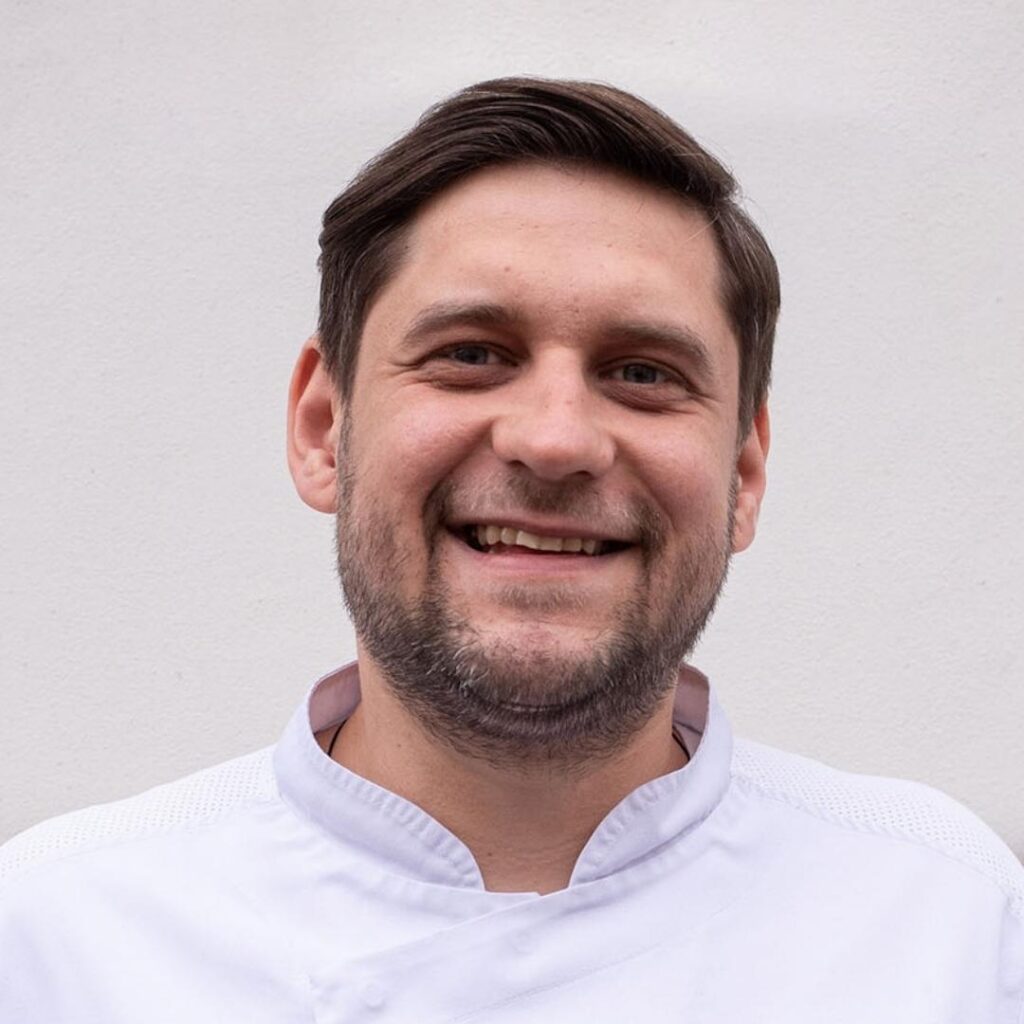 Marcin Przybysz – Executive Chef, Restauracja Epoka
Marcin Przybysz – Executive Chef, Restauracja Epoka
Trudno mi mówić za innych, mogę jednak powiedzieć o Epoce i podzielić się swoim zdaniem na temat obecnej sytuacji w branży. Niewątpliwie są to czasy trudne dla wszystkich, jednak osoby, z którymi rozmawiam o panującej sytuacji, nie narzekają. Myślę, że narzekają ci, co zawsze narzekali, czyli twórcy tzw. restauracji z przypadku, którzy nie przemyśleli swoich konceptów. Pamiętajmy, że nawet w czasie kryzysu inflacyjnego są wokół restauracje odnotowujące wzrosty.
Mam przekonanie, że gdy ma się wszystko dobrze opracowane, to trzeba prowadzić restaurację właśnie w ten spójny z sobą sposób i zawsze znajdą się tego odbiorcy. Co więcej, goście również rozumieją obecną sytuację, bo sami widzą, jak wszystkie ceny idą w górę. Osobiście staram się więc nie narzekać, tylko szukać rozwiązań.
Moim zdaniem inflacja jest swego rodzaju kontynuacją pandemii – w takim ujęciu, że jest to kolejny etap „czystki” w polskiej gastronomii. Każdego dnia mijamy masę nieprzemyślanych, niedopilnowanych konceptów, które prędzej czy później z pewnością się zamkną. Inflacja przyspiesza ten proces. Na koniec zostaną miejsca, do których po prostu warto pójść.
Dodam także to, co zawsze podkreślam – między polskim a zagranicznym rynkiem restauracyjnym wciąż jest ogromna przepaść. Za granicą lokale często prowadzą szefowie kuchni, pasjonaci, którzy naprawdę znają się na gotowaniu. U nas często są to po prostu właściciele, w wielu przypadkach nierozumiejący, jak trudnym biznesem jest prowadzenie restauracji. Spójrzmy, jak to funkcjonuje w innych częściach świata, na przykład we Włoszech. Tam nawet w małych miejscowościach można spotkać wiele miejsc z prawdziwym, tradycyjnym, rzemieślniczym jedzeniem, prowadzonych przez doświadczonego szefa kuchni.
Wierzę więc, że inflacja zweryfikuje rynek i wśród tych „właścicieli” zostaną ci, którzy chcą słuchać głosu szefów kuchni i akceptować rzeczywiste potrzeby, a nie kierować się własną wizją, nierzadko zupełnie oderwaną od realiów rynkowych.
 Marek Cynowski – CEO & Co-Founder, Rebel Tang
Marek Cynowski – CEO & Co-Founder, Rebel Tang
Nie ma jednej uniwersalnej strategii, która byłaby złotym środkiem i rozwiązaniem wszystkich problemów. Branża potrzebuje działań holistycznych, które nie tylko pozwolą zwiększyć przychody restauratorów, ale dadzą też chwilę oddechu. Ostatnie dwa lata to ciągła walka i szarpanie się ze wszystkimi o własny byt. Niestety uważam, że wiele lokali nie przetrwa początku nowego roku – stałe podwyżki mediów, potencjalnie zwiększone koszty produktów oraz niepewna sytuacja konsumentów nie będą sprzyjać konsumpcji w restauracjach.
To, co robimy jako Rebel Tang, ma pozytywny wpływ na poprawę sytuacji restauratorów – delivery stale rośnie i nie można już tego nie robić. Parę lat temu był taki moment, że wszyscy musieli być na Facebooku – fryzjerzy, aptekarze, a nawet parafie otwierały swoje profile i były tam obecne. 90% z nich już nie prowadzi żadnych działań, bo po prostu nie robili tego dobrze, poszli za tłumem i z tym tłumem się zgubili. Teraz sytuacja jest podobna – platform do zamawiania jedzenia jest dużo, każda ma inną specyfikę, własny algorytm i to nie jest prosta sprawa, żeby móc tam zaistnieć i zdobyć zamówienia. Tak jak kiedyś w przypadku Facebooka, tak i teraz w kontekście działań delivery – warto zaufać profesjonalistom i zrobić to porządnie.
 Agnieszka Tokarz – Food Trend & Product Manager, Nice To Fit You
Agnieszka Tokarz – Food Trend & Product Manager, Nice To Fit You
Inflacja nie bez przyczyny jest obecnie gorącym tematem rozmów. Presja z nią związana rośnie nie tylko w Polsce, ale i na całym świecie, co bezpośrednio przekłada się m.in. na ceny towarów w sklepach, siłę nabywczą konsumentów czy koszty utrzymania. Marki stanęły przed trudnym zadaniem dostarczenia wysokiej jakości usług w sektorze HoReCa przy jednoczesnym borykaniu się z rosnącymi cenami produktów, kosztów mediów, opakowań. Co więcej, dzisiejszy konsument odczuwa skutki tych problemów, również starając się ograniczyć swoje wydatki.
Tym, co obserwujemy na rynku polskim, jest wzrost zainteresowania markami własnymi od produktów. W celu jego utrzymania istotna jest prawidłowa struktura cenowa oferowanych artykułów czy zbudowana tożsamość marki. Warto zadbać m.in. o obecność produktów marki w dyskontach, gdzie w dzisiejszych czasach coraz częściej robimy zakupy. Mówi się też o szukaniu pomocy u omnishopperów, którzy śledzą zachowania naszych klientów, a także o powrocie sprzedaży on premise – „na miejscu”. Pewne jest, że konsumenci szukają tańszych rozwiązań – należy więc obrać odpowiednią taktykę cenową oraz zaplanować (we właściwym czasie) wszelkie rabaty czy promocje.
 Krystyna Pogoń – dietetyk, technolog żywności, Founder & COO w Dietific
Krystyna Pogoń – dietetyk, technolog żywności, Founder & COO w Dietific
Kryzys inflacyjny, który przyszedł wraz z 2022 rokiem, jest zjawiskiem, z jakim większość istniejących obecnie restauracji, hoteli i cateringów nigdy nie miała do czynienia. Trzeba zauważyć, że dla branży HoReCa jest on bardziej odczuwalny niż dla przeciętnego konsumenta. Nasze bieżące koszty to te, które wzrosły znacząco ponad inflację CPI – mówię tu o cenach surowców spożywczych i energii. Na kryzys inflacyjny nie można patrzeć w oderwaniu od poprzednich dwóch lat pandemicznych – już wtedy branża wpadła w spore kłopoty i bieżący rok miał być początkiem odbudowy biznesów, kiedy to wiele zaciągniętych zobowiązań miało być spłacanych. Tak więc dla wielu firm to, z czym musiały się zmierzyć w 2022 roku, było czymś znacznie poważniejszym niż inflacja – to był kolejny cios po wielu trudnych miesiącach.
Niestety wiele marek – od dużych do małych, lokalnych – nie wchodzi z nami w kolejny rok. Pamiętajmy, że spora część branży HoReCa to nie wielkie korporacje, ale małe biznesy prowadzone przez konkretnych ludzi – dla wielu z nich jedyną opcją na przetrwanie było zakończenie działalności. Do tej grupy zalicza się jedno z najbliższych mi kulinarnie miejsc – azjatycka restauracja znajdująca się na jednym z krakowskich osiedli, prowadzona przez wieloletnich znajomych. W listopadzie tego roku po raz ostatni zjedliśmy tam naszą ulubioną zupę z bambusem i najlepszą na świecie smażoną wołowinę.
Z reguły większość marek z branży pogodziła się z koniecznością podnoszenia cen, żeby nadążyć za wzrostem kosztów. W zależności od wielkości biznesu i sytuacji podwyżki te były większe lub mniejsze – ale były dość powszechnym zjawiskiem. Począwszy od cen hot dogów w popularnej sieci meblarskiej, przez globalne fast foody, a skończywszy na restauracjach z kategorii premium. W mojej ocenie wygranymi w tej sytuacji są ci, którzy zdecydowali się na trochę większe podwyżki, jednocześnie zachowując jakość, do jakiej klienci byli przyzwyczajeni. Najgorszą możliwą strategią jest podnoszenie cen i obniżanie jakości produktu – w dobie inflacji klienci spodziewają się podwyżek (nawet jeżeli nie są z nich zadowoleni), ale widząc wyższe ceny, oczekują, że idzie za tym co najmniej ten sam standard, z którego korzystali wcześniej.
Najbliższą mi częścią branży jest oczywiście catering dietetyczny. W tym sektorze zachowania firm związane z podwyżkami były bardzo zróżnicowane i czasami zaskakujące – zaobserwować można było nawet obniżki cen w tak trudnym, inflacyjnym roku. Na taki krok zdecydował się jeden z liderów branży, ogłaszając niespotykaną dotychczas promocję wraz z początkiem roku, a później na stałe znacząco obniżając ceny. Wiąże się to ze strategią przejęcia części rynku, który wcześniej był zagospodarowany przez tańsze podmioty. Podejrzewam, że przy takim efekcie skali, jaki tak duża firma jest w stanie uzyskać, taka strategia może mieć uzasadnienie nawet wobec silnie rosnących kosztów.
W tym samym czasie bardzo wiele firm starało się utrzymać niezmienione ceny przez możliwie długi czas, jednocześnie nieco obniżając jakość serwowanych dań. Niestety kilka z marek, które próbowały stosować takie podejście, nie przetrwało do końca wakacji – okresu popytowo najgorszego dla branży. Sporo firm zdecydowało się podnieść ceny stosownie do wzrostu kosztów, starając się „osłodzić” klientom ten proces chwilowymi promocjami lub odwrócić od niego uwagę modyfikacją oferty.
Tym, czemu pewnie większość z nas pracujących w branży HoReCa poświęciła sporo uwagi w 2022 roku, była możliwość redukcji kosztów. Zatrzymał się bardzo dynamiczny w ubiegłych latach wzrost wynagrodzeń personelu, ograniczono budżety na reklamę czy inwestycje w nowe projekty.
Trzymam kciuki, żeby po tak trudnym roku ten kolejny okazał się trochę łagodniejszy. Liczę na to, że nawet jeżeli inflacja nadal będzie się utrzymywać, to skoki cen samej żywności i energii nie będą już tak zaskakujące i drastyczne, co pozwoli nam choć trochę odetchnąć i zaplanować dalsze działania.
Pozytywna zmiana w branży
 Marcin Przybysz – Executive Chef, Restauracja Epoka
Marcin Przybysz – Executive Chef, Restauracja Epoka
Ten rok był dobry, ponieważ nie było obostrzeń czy przerwy COVID-owej – ludzie zaczęli wracać do ulubionych restauracji i chętniej jeść na mieście. Choć początek roku był trudny przez wzgląd na wojnę, która wybuchła za naszą wschodnią granicą, to w gruncie rzeczy dostrzegliśmy, jak wielka siła do niesienia pomocy drzemie w naszym narodzie.
Zauważyłem jednak dodatkowo pozytywną zmianę stricte w branży gastronomicznej. Ci, którzy robili dobrą robotę, robią to dziś jeszcze lepiej. Oni nie chowają głowy w piasek, wprost przeciwnie – jeszcze dokładniej pilnują swoich biznesów, kontrolują koszty życia restauracji, co w gruncie rzeczy zawsze powinno być dopilnowane.
 Marek Cynowski – CEO & Co-Founder, Rebel Tang
Marek Cynowski – CEO & Co-Founder, Rebel Tang
Najważniejsza zmiana, którą obserwujemy, to profesjonalizacja. Coraz większa liczba właścicieli lokali decyduje się skupić na jednej, dwóch rzeczach, w których są najlepsi, zmniejszając swoje menu. Magda Gessler uczy tego w swoich programach od dekady, ale dopiero teraz, gdy utrzymanie mnóstwa produktów potrzebnych do serwowania dużej karty staje się za drogie, te zmiany są wdrażane bardzo świadomie. Dzięki temu restauracje – pomimo tego, że mają mniejsze karty – robią po prostu lepsze jedzenie.
 Agnieszka Tokarz – Food Trend & Product Manager, Nice To Fit You
Agnieszka Tokarz – Food Trend & Product Manager, Nice To Fit You
Myślę, że największą pozytywną zmianą jest faktyczne słuchanie potrzeb klienta. Nigdy wcześniej nie obserwowaliśmy tak elastycznego podejścia oraz dostosowywania się do tego, czego szuka konsument i w zasięgu jakich kwot jest on w stanie sobie pozwolić na zakup produktów spożywczych. Firmy starają się sprostać oczekiwaniom konsumentów, tworząc tańsze opcje, adekwatne do sytuacji finansowej wielu Polaków.
 Krystyna Pogoń – dietetyk, technolog żywności, Founder & COO w Dietific
Krystyna Pogoń – dietetyk, technolog żywności, Founder & COO w Dietific
Bardzo trudno jest w tym roku szukać pozytywów – był on niesamowicie wymagający. Nie było tygodnia, żebym nie słyszała o zamykającym się znanym i lubianym biznesie gastronomicznym, a z takiej perspektywy wyzwaniem jest szukanie tego, co dobre.
Niemniej jednak zauważyłam pewną pozytywną zmianę – na płaszczyźnie kontaktów między przedsiębiorcami z branży. Do teraz były to kontakty czysto biznesowe – z kontrahentami dobre, a z konkurencyjnymi biznesami nastawione na rywalizację, czasami wręcz wrogie. I nagle pojawiła się sytuacja, która nas wszystkich w jakimś sensie przerosła – sytuacja, w której nie ma wygranych, są tylko ci, którym uda się przetrwać. I ta obiektywnie trudna sytuacja przyniosła ze sobą sporą falę życzliwości – kontrahenci zaczęli się bardziej wspierać i zastanawiać, co jeszcze mogą zrobić, żeby sobie pomóc. Nawet konkurujący dotychczas przedsiębiorcy zaczęli ze sobą rozmawiać i wspólnie szukać jakichś rozwiązań.
Moim marzeniem była konsolidacja rynku cateringu dietetycznego poprzez stworzenie grupy podmiotów, które dzielą się ilomaś doświadczeniami i problemami, przez co są w stanie lepiej odpowiadać na tak wymagającą sytuację. Na razie to ciągle marzenie, ale poznałam już wielu przedstawicieli tej relatywnie małej branży i wierzę w możliwość jego realizacji.
Najważniejsze wydarzenie branży
 Marcin Przybysz – Executive Chef, Restauracja Epoka
Marcin Przybysz – Executive Chef, Restauracja Epoka
Wszyscy w branży czekaliśmy oczywiście już od dawna na kolejny Przewodnik Michelin. Niestety najwyraźniej musimy jeszcze uzbroić się w odrobinę cierpliwości w tym zakresie.
Z perspektywy Epoki ważnym wydarzeniem było docenienie nas w rankingu La Liste. Staliśmy się najwyżej notowaną polską restauracją wśród 1000 najlepszych na świecie.
Dla mnie osobiście kluczowym wydarzeniem był jednak udział w Nocnym Markecie. Uznaję to za jedno z najciekawszych doświadczeń w moim życiu, które zdecydowanie chciałbym powtórzyć!
 Marek Cynowski – CEO & Co-Founder, Rebel Tang
Marek Cynowski – CEO & Co-Founder, Rebel Tang
Takich wydarzeń było kilka. Przejęcie Wolta przez DoorDasha – mimo że może nie jest to jakaś zauważalna zmiana z perspektywy klientów, to jednak globalny potentat jest już obecny w Polsce.
Dla nas widoczne były też wzrosty zamówień w kanale delivery – pomimo gorszego czasu dla całej branży kategoria food delivery stale się rozwija.
Nie mogę nie wspomnieć też o współpracach marek z gwiazdami. McDonalds z Matą rozbił bank; my jako Rebel Tang również możemy pochwalić się takim pionierskim projektem – Blow Burgers z największym influencerem w Polsce, Karolem Gązwą Blowkiem.
 Agnieszka Tokarz – Food Trend & Product Manager, Nice To Fit You
Agnieszka Tokarz – Food Trend & Product Manager, Nice To Fit You
Na polskim rynku jest to zdecydowanie Forum Rynku Spożywczego i Handlu, zorganizowane na początku listopada 2022 roku – zarówno online, jak i stacjonarnie – w warszawskim Hotelu Sheraton. W trakcie tego wydarzenia odbyło się spotkanie przedstawicieli kluczowych i najważniejszych marek. Mieli oni okazję wymienić się swoimi przemyśleniami i doświadczeniami odnośnie do strategii firm w dobie inflacji, wartości, na jakie stawiają, oraz przyszłości branży.
Jeśli chodzi o wydarzenia zagraniczne, dla mnie zdecydowanie wybija się paryski Sial czy Plant Based World Expo Europe z Londynu. Są to eventy na naprawdę wysokim poziomie, gdzie oprócz wystawców produktów, których można osobiście poznać i skosztować ich produktów, organizowane są również konferencje z częścią wykładową czy nawet demo kulinarne z przedstawieniem produktów w aranżacji konkretnej potrawy!
 Krystyna Pogoń – dietetyk, technolog żywności, Founder & COO w Dietific
Krystyna Pogoń – dietetyk, technolog żywności, Founder & COO w Dietific
Najważniejszym wydarzeniem nie tyle w branży, ale dla każdego z nas, w tym przedsiębiorców, było z pewnością rozpoczęcie wojny w Ukrainie. To zmieniło wszystkie plany i prognozy, a w efekcie także realny przebieg tego roku w branży HoReCa.
Zarówno wybuch wojny, jak i wszystkie związane z nim skutki (a więc inflacja czy spadek popytu na usługi gastronomiczne) pociągnęły za sobą cały szereg likwidacji kolejnych biznesów z branży. Gastronomiczna mapa Polski na koniec 2022 roku będzie zupełnie inna niż na początku tego roku i będzie na niej brakować wielu wspaniałych i lubianych miejsc.
Przykładem może być upadek Mr Hambuger – pierwszej polskiej sieci fast food z 30-letnią tradycją. Choć nie jestem zwolennikiem fastfoodowego jedzenia, to bardzo mi przykro, że stworzonej w Polsce marce nie udało się uporać z trudnościami, jakie przyniósł ten rok. Jest to niestety coś, z czym mierzy się wiele rodzimych firm, niemających „zaplecza” w funduszach inwestycyjnych czy zagranicznym kapitale. Warto o tym myśleć, podejmując decyzje zakupowe – nasze polskie marki, rodzinne firmy, lokalne restauracje potrzebują wiernych klientów/gości bardziej niż duże korporacje.
Do innych smutnych wiadomości branżowych należy zaliczyć śmierć Tadeusza Gołębiewskiego, odpowiedzialnego za stworzenie naprawdę wyjątkowej sieci hoteli. I nawet jeśli osobiście wolę wypoczynek w stylu slow life, to sieć hoteli Gołębiewski jest znacząca na polskiej mapie branży HoReCa.
Przygotowując to podsumowanie, starałam się znaleźć także jakieś pozytywne wydarzenie branżowe, by nie było tak ponuro. 😉 Tu z pewnością zapadły mi w pamięć targi branżowe, które po dwóch latach w końcu odbywały się w normalnym, stacjonarnym trybie, dzięki czemu przedstawiciele branży mieli kilka okazji do wspólnych spotkań.
Największe wyzwanie
 Marcin Przybysz – Executive Chef, Restauracja Epoka:
Marcin Przybysz – Executive Chef, Restauracja Epoka:
Trudno o jedną odpowiedź, ponieważ w gastronomii każdy dzień jest nowym wyzwaniem. Najlepiej wiedzą o tym ludzie pracujący w branży – tutaj codziennie czeka na nas coś, z czym nigdy wcześniej się nie mierzyliśmy.
Ja staram się nie zamartwiać wyzwaniami, nie koncentrować się na ich pogłębianiu, lecz na szukaniu optymalnych rozwiązań. Trudności, na które napotykam, obracam w coś pozytywnego. Myślę, że jest to dobra, uniwersalna strategia dla osób chcących wiązać swoją przyszłość z sektorem HoReCa.
 Marek Cynowski – CEO & Co-Founder, Rebel Tang
Marek Cynowski – CEO & Co-Founder, Rebel Tang
1) Utrzymanie biznesów i miejsc pracy.
2) Utrzymanie cen na poziomie akceptowalnym dla klientów w kontrze do galopujących podwyżek surowców i stałych wzrostów cen za media.
 Agnieszka Tokarz – Food Trend & Product Manager, Nice To Fit You
Agnieszka Tokarz – Food Trend & Product Manager, Nice To Fit You
Jak mówi NIELSEN w swoim raporcie Consumer Outlook Survey: Wyzwaniem dla detalistów i producentów będzie określenie akceptowalnego kompromisu cenowego, przy jednoczesnym zaspokojeniu możliwości wyboru produktów dla różnych grup konsumenckich, które będą zgodne ze zmienionymi priorytetami.
Najbliższy rok to w dalszym ciągu borykanie się z wysoką inflacją i społeczeństwem liczącym każdą złotówkę. Sukcesem będzie oferowanie rozwiązań, które z perspektywy konsumenta będą dla niego opłacalne i jednocześnie oferujące wysokiej jakości produkty. Dobrym podejściem firm będzie zredefiniowanie strategii marek, być może przemyślenie na nowo strategii produktów, ustalenie celów odpowiednich do charakteru brandu, zidentyfikowanie swojej przewagi rynkowej na tle konkurencji oraz bycie blisko obecnych i przyszłych konsumentów, słuchanie ich potrzeb i proponowanie adekwatnych rozwiązań.
 Krystyna Pogoń – dietetyk, technolog żywności, Founder & COO w Dietific
Krystyna Pogoń – dietetyk, technolog żywności, Founder & COO w Dietific
Rok 2022 to właściwie dwa wyzwania, które wspólnie składają się na jedno: znaczący wzrost kosztów w praktycznie wszystkich kategoriach oraz spadek popytu – zarówno poprzez spadek realnych dochodów klientów i obawy o pogorszenie się sytuacji materialnej, jak i znaczący spadek liczby zagranicznych turystów. A to wszystko w sytuacji, w której przedsiębiorstwa były i tak mocno nadwyrężone wyzwaniami, jakie postawiła przed nimi pandemia.
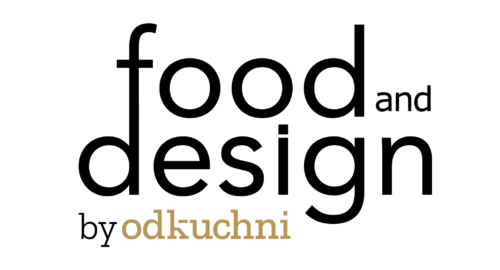
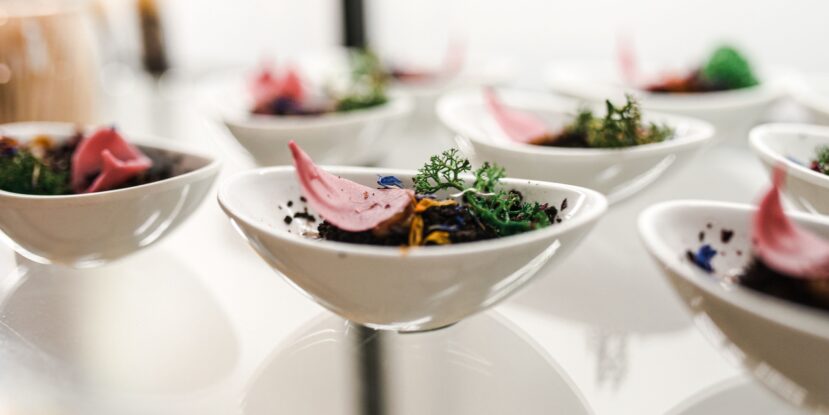
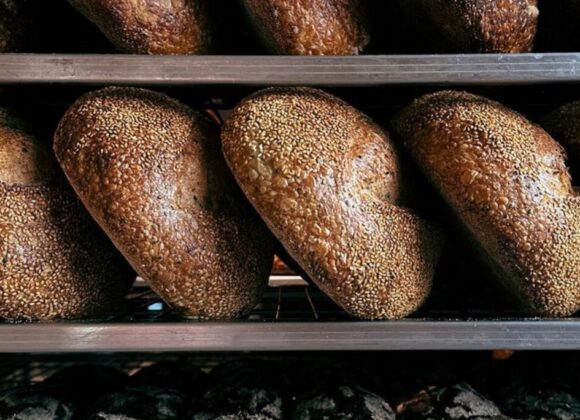
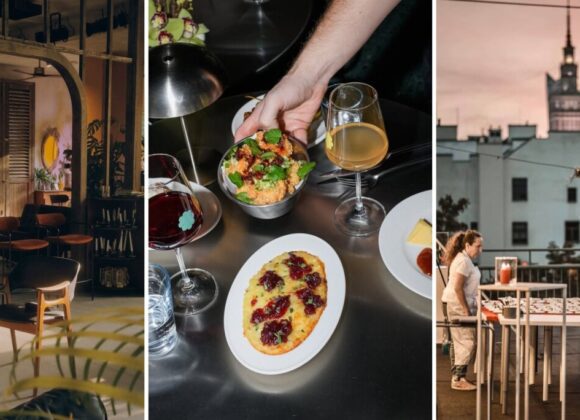

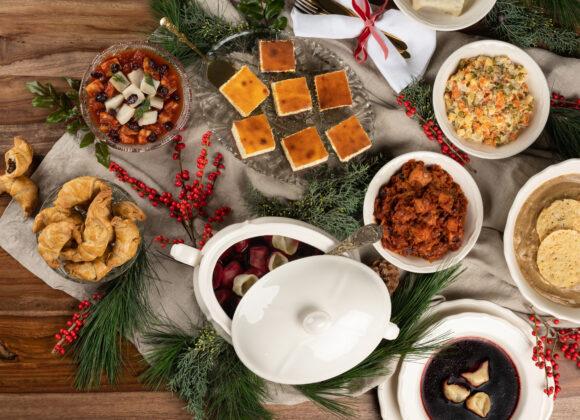




 Młodszy specjalista ds. komunikacji marketingowej i PR.
Młodszy specjalista ds. komunikacji marketingowej i PR.


 Absolwent Uniwersytetu Warszawskiego oraz Szkoły Głównej Gospodarstwa Wiejskiego. W branży HoReCa od ponad 10 lat. Przez lata związany z Grupą Trip, Sobienie Królewskie Golf and Country Club oraz restauracją Florentin w Warszawe.
Absolwent Uniwersytetu Warszawskiego oraz Szkoły Głównej Gospodarstwa Wiejskiego. W branży HoReCa od ponad 10 lat. Przez lata związany z Grupą Trip, Sobienie Królewskie Golf and Country Club oraz restauracją Florentin w Warszawe. Absolwentka Wydziału Architektury Politechniki Warszawskiej na kierunku Architecture for Society of Knowledge oraz Komunikacji Wizualnej na Politecnico di Milano. Specjalistka od budowania nastroju. Doświadczenie zdobywała w kraju i zagranicą podczas licznych warsztatów międzynarodowych (Sevilla, Lizbona, Florencja), stypendium na La Sapienza (Rzym) oraz pracując m.in. w Carmi e Ubertis i ADM Milano.
Absolwentka Wydziału Architektury Politechniki Warszawskiej na kierunku Architecture for Society of Knowledge oraz Komunikacji Wizualnej na Politecnico di Milano. Specjalistka od budowania nastroju. Doświadczenie zdobywała w kraju i zagranicą podczas licznych warsztatów międzynarodowych (Sevilla, Lizbona, Florencja), stypendium na La Sapienza (Rzym) oraz pracując m.in. w Carmi e Ubertis i ADM Milano.








 Menedżer z wieloletnim doświadczeniem w branżach kosmetycznej, spożywczej, dziecięcej. W trakcie swojej kariery związany z firmami takimi jak: L’Oreal, Samsung, Danone-Nutricia, Unilever. W ciągu swojego życia zawodowego odpowiadał między innymi za rozwój sprzedaży i contentu eCommerce w Polsce i krajach Europy Środkowo-Wschodniej.
Menedżer z wieloletnim doświadczeniem w branżach kosmetycznej, spożywczej, dziecięcej. W trakcie swojej kariery związany z firmami takimi jak: L’Oreal, Samsung, Danone-Nutricia, Unilever. W ciągu swojego życia zawodowego odpowiadał między innymi za rozwój sprzedaży i contentu eCommerce w Polsce i krajach Europy Środkowo-Wschodniej. 

























































